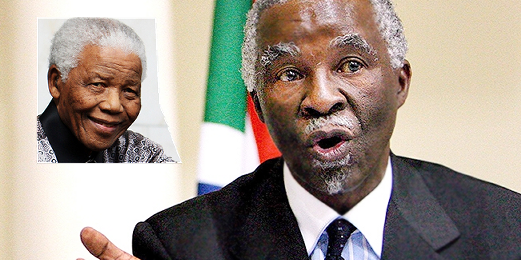Monopoly Capitalism and Defunct Marxism
The BBC recently interviewed Professor David Harvey, author of the Marxist treatise 'The Enigma of Capital.' Prof. Harvey does make one very good point about the failure of far too many capitalists to invest in socially valuable new production systems and instead investing money in money itself by means of derivatives or swaps or currency bets or other esoteric financial products. He didn't have time to elaborate why they do this, but I will.
It's because in a time of global competition, the era of easy large profits from production is long over. Developing countries now have production systems which compete with ours --and this progressively destroys the profit margin on capital for corporations. So they turned to cartel financial products to bolster their profits. We need to limit that.
But Harvey's Marxist analysis is otherwise vague and unconvincing. He made one telling admission in part 2 of that BBC interview :
"Capitalism has been a very productive force in history"And he was unable to cite any Marxist society which could compare to Capitalism in terms of the social improvement it offers. So where does that leave his advocacy of Marxism? I think he is unable to break out of the box of his background.
--David Harvey @ 5minutes
http://www.youtube.com/watch?v=4amK0zFskAk&feature=related
But there is a solution. And it comes from putting some easy assumptions under a microscope and examining them. Let me quote the Youtube blurb which accompanies this BBC interview :
"Capitalism is the way the world works, whether we like it or not. President Obama is trying, against stiff opposition, to reign in the worst excesses of free market capitalism with his reforms of Wall Street. But Professor David Harvey, Marxist author of The Enigma of Capital says he's wasting his time. He tells Sarah Montague that capitalism is amoral and lawless, and should be overthrown."The phrase "the worst excesses of free market capitalism," trips off the tongue very easily, but it contains unspoken assumptions. Within capitalism, what is the opposite of "free market capitalism"?
Un-free market capitalism. Or to put it another way: Monopoly Capitalism. Which is increasingly what we have. I've said before that a free market is a great idea and we should try it! But people use the words 'free market' as if a fully free market exists.
I would argue that it is the "Free Market" aspect which has produced many of the benefits, not the Capitalism part. Capital has to do with the control of capital by banking and financial systems. If there is a free market, then it is the 'company' which utilizes that capital most effectively -in terms of organization and end product- which triumphs, to the benefit of all.
Of course, if banking and financial systems only provide Capital to a well-connected elite, then such productive companies may not arise. May not be allowed to rise. So in the first instance we must attack these cozy cartels of vested interest of capital access and application.
Then, presuming a level playing field of access to capital, there must also be a free market where these 'companies' can openly compete, free of unfair regulatory or legal systems. Such unfairness does exist.
For example when an existing monopoly uses either government or legal connections to target an upcoming more productive competitor.
Another term in that blurb is: "capitalism is amoral and lawless."
Yes, capitalism has become stunningly lawless, and Harvey is right to highlight that. But capitalism is by definition amoral, so it's startling to hear a professor of macroeconomics even say that.
I mean that morality is inapplicable. If a company comes up with a new carburetor and if car companies like that product and install it in many cars --causing other carburetor makers to go out of business, the capitalism by definition doesn't care.
People who worked for those now defunct carburetor makers can join the new carburetor company, or start up their own and beat the new carburetor with an even better design. And we all end up with better carburetors.
Capitalism is amoral, rather it is the "lawless" aspect of our current situation which should be the target of his criticism. The moral issues are for us to decide by taxation, or social support, or limits to profit, or other tweaking of the downside of any system.
But Harvey doesn't want to admit that bolstering the rule of law in markets and making moral adjustments to Capitalism is the way forward. Because he is determined to replace the structure with another: Marxism.
The two things we need are:
1) A free market in access to capital -not banker and corporate cartels.
It suits the establishment to have this debate. To interview Harvey is to make it look like the only solution to our problems is overthrow of capitalism for an unworkable Marxist alternative. So because most
2) A free market in sale of product -not bailouts and corrupt judges.
people don't buy Marxism as a solution, it makes it look like there is no alternative or solution at all.
There is:
The rule of law. The end of cartel monopoly capitalism.


Comments
Post a Comment